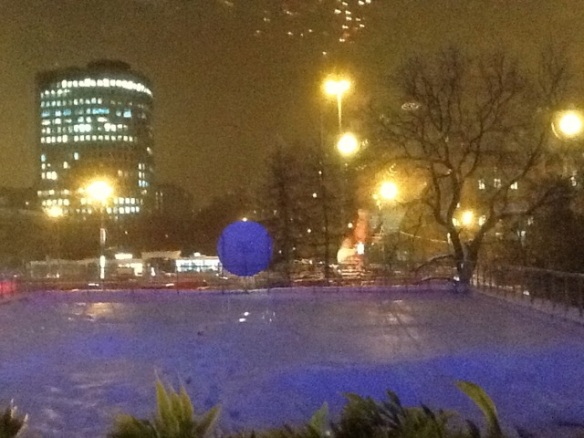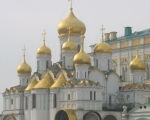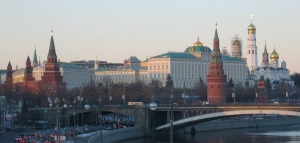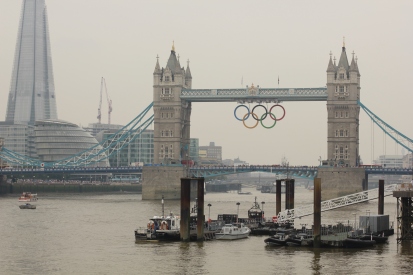As I walk into the restaurant it is clear that something is going on. A photograph of this moment would show several heads turned in the same direction, a group of people pointing in the opposite direction, cutomers caught half way between sitting and standing, and others twisting their heads and necks to see, although there is nothing to see but the closed door to the bathroom. From behind this door there is a terrible noise: a strange and unearthly howling.
Time seems to be suspended at first, and then things begin to move on again. The howling is truly terrible and as ice apparently drips down my own spine, I see fear and anxiety in the faces around me too. The howling develops to include gibbering and crying and a repetitive high-pitched shout, the manager is called and a small crowd of colleagues and clients surround him, advising and pointing, propelling him into the lair of the strange and distressed creature. The manager goes in alone. Everyone waits. The restaurant becomes still, and the canned christmassy music apologetically regains control of the place.
I take my drink and notepad and settle to my quiet reflections as planned, but the atmosphere is tense and there are still distractions: men in suits speaking into two-way radios, a waitress slipping in through the door to the bathrooms and dashing out again, more suits moving about, in and out of the cafe. Customers have left hastily.
Then, just as we have almost forgotten the terrible howling, a group emerge through the door at last. Five or six young men, in their early twenties probably: one is being supported by the others. He is impossibly thin. The manager follows them as they wind their way between tables and chairs, making for the door onto the roof which, in the summer, is an outdoor cafe besieged by pigeons, but is now a shimmering white square in the dusk. They help him down the three short steps onto the wide, flat roof where snow has met rain and is now part ice, part treacherous lake. Holding on to the railings at the side, the thin boy shudders and shakes but stays on his feet. I can see his breath forcing tiny clouds into the evening air. The others stand around now, one or two of them light cigarettes, the manager is waiting by the door, watching.
Finally the boy recovers a little. It seems as if his bones will poke out of what he is wearing; too little for this temperature at this time of day in this city. He is a human leaf in autumn, scant and skeletal, trembling and vulnerable and ready to drop. The boys have left slushy prints across the roof and managed a slow and careful descent down the slippery iron staircase: two walking backwards in front of him, the others following in a brotherly bundle from which hands emerge at all angles to hold his shoulders, his arms, his elbows, the railings and each other.
Much later, and way too late, three paramedics arrive in the cafe. The manager shows them which way the boys went, and they trudge across unsteadily to the railings to look hopelessly down into the darkness. They will be miles away by now. I realise that the dark-looking faces in suits who have been giving one another sideways glances and talking furtively into mobile phones, have not been calling for security backup, they have been calling for help. I catch the look on the manager’s face as his gaze followed the footsteps the boys have left, and see a surprising gentleness and genuine concern: not, after all, for his business, but for the boy.
Looking out of the window of the cafe, following those icy footprints, I can’t help but feel this concern too. But the image that follows me home afterwards is that of the many arms around him as he makes his slow, precarious way back into the night. He is not out there alone.








